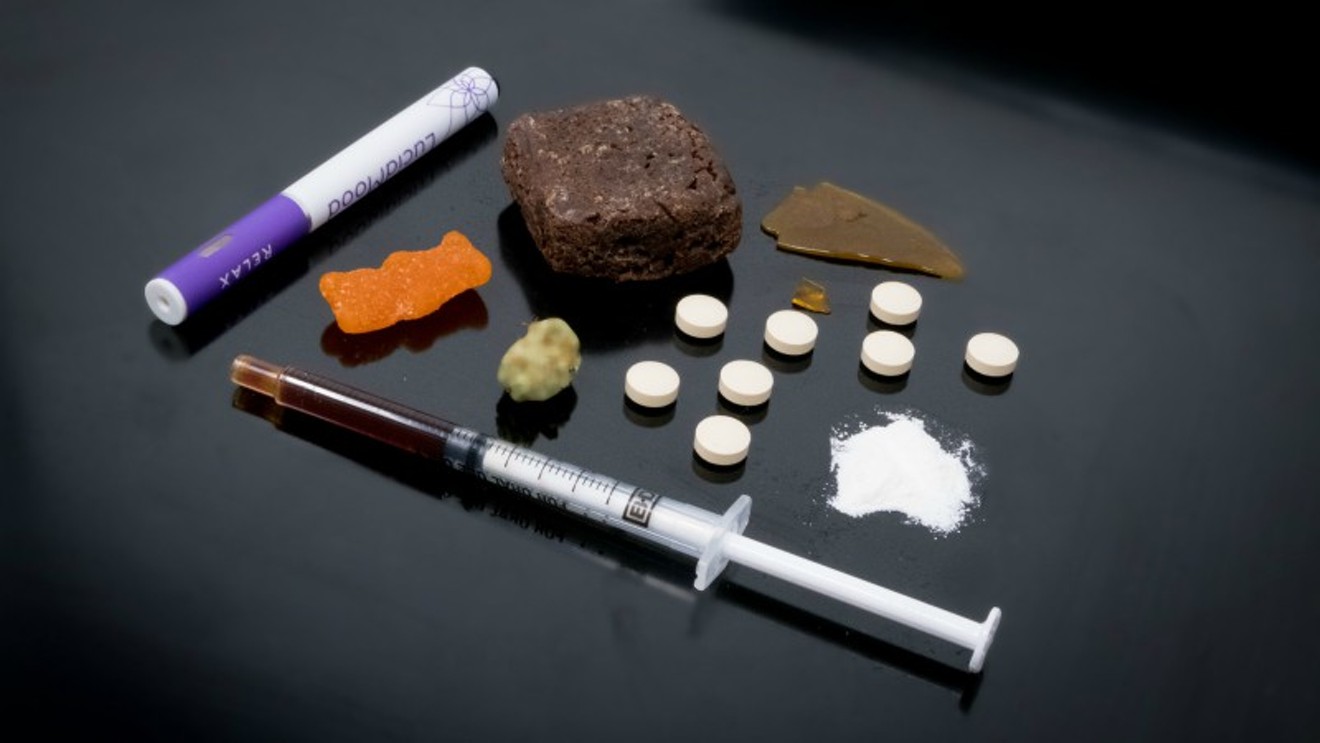"This is very different from marijuana in the 1980s," says Rachel O'Bryan, co-founder of Smart Colorado, whose mission statement notes that the outfit "engages and informs Coloradans on the risks that marijuana poses to youth." As a result, she maintains, "it's a fundamentally different game."
This same theme is at the heart of a Smart Colorado spin-off website: NotTheSamePot.org.
"Colorado Kids Are Canaries in the Coal Mine of Marijuana Legalization," penned by O'Bryan, is accessible below, along with one of its primary sources: a fact sheet from the 2017 "Colorado Marijuana Market Size and Demand Study," commissioned by the state's Marijuana Enforcement Division.
The latter document shows that the amount of THC — the psychoactive ingredient in cannabis — in the average marijuana flower sold by Colorado stores went from 16.4 percent in 2014 to 19.6 percent in 2017, an increase of nearly 20 percent. And O'Bryan has seen no evidence to suggest this trend will end anytime soon.
Then there's the matter of marijuana concentrates, which are increasingly popular among underage users, she contends.
"Colorado's most recent Healthy Kids Survey said the youth rate for marijuana use didn't go up," O'Bryan acknowledges. "But if you dig a little deeper, you'll see there's been a statistically significant increase in dabbing. Over a third of youth users are dabbing it."
That's concerning to O'Bryan because marijuana concentrates tend to be much more powerful than cannabis flower. The aforementioned MED study found that THC potency went from 56.6 percent in 2014 to 68.6 percent three years later — a jump of around 21 percent and a far cry from an average rate of 3.8 percent calculated by the National Institute on Drug Abuse circa the 1990s.
Moreover, O'Bryan adds, "you can go into stores in town and see shatter and wax marketed at 90 percent THC."
That's possible, she notes, because "the state has no potency limits in place, even though the health department" — specifically the Colorado Department of Public Health & Environment — "says these products haven't been proven safe. If you go to the department's website, they acknowledge that 'we don't know about the safety of dabbing, we don't know about the safety of vaping.' These products haven't been studied, and our regulators are behind the eight ball. We are not keeping up with the market."
A call for restrictions is nothing new. Amendment 139, which would have limited the THC potency of marijuana products to 16 percent and put packaging and labeling rules into the Colorado Constitution, was heavily promoted in 2016 before proponents withdrew the measure.
As for Smart Colorado, "we've been pushing for limits since almost the first year of legalization," O'Bryan points out. "We thought potency limits were necessary, and we actually got the state on board back in 2014 when it came to edibles."

According to Smart Colorado, the items in this photo include 22 percent THC bud, a THC-infused brownie, 73 percent THC shatter, a THC-infused lollipop, a 74 percent THC hash oil syringe, THC-infused breath mints, THC-infused coffee and an e-cigarette with THC.
thcphotos.org via Flickr
The potential tie between marijuana and addiction remains controversial. But in a July 2018 interview with Westword, Dr. Rav Iker, the Boulder-based author of the book Cannabis for Chronic Pain, called for making concentrates illegal. The post is among the sources O'Bryan used in her report.
O'Bryan doesn't go as far as Iker. "Our opinion is that if you limit the potency of concentrates and studies show they're safe, you can open the gate," she says.
In the meantime, she goes on, "we're trying to raise awareness and protect kids — and let people know how strong these products are."
Click to read the Smart Colorado report "Colorado Kids Are Canaries in the Coal Mine of Marijuana Legalization" and the 2017 "Colorado Marijuana Market Size and Demand Study" fact sheet.














